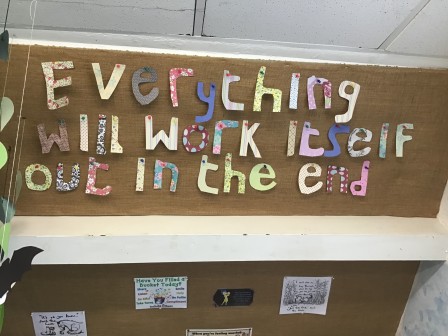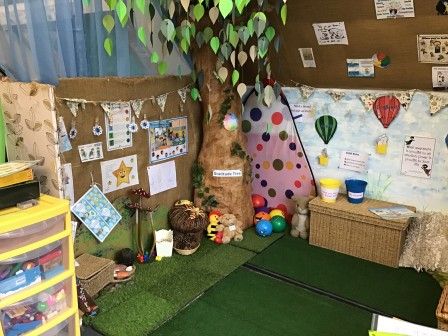Here at Woodside, we are proud to be an ELSA school. This means we have a member of staff (Miss Brain) who has been trained by Educational Psychologists to plan and deliver personalised programmes of support for children who may be experiencing a range of emotional or social difficulties. This may include issues regarding:
– Recognising and understanding emotions
– Anger
– Self esteem
– Bereavement/loss
– Friendship skills
– Social skills
– Behaviour management
– Anxiety/worries
– Transitions/change
ELSA’s receive ongoing support from the Educational Psychology Service and must attend regular supervision sessions to keep the accreditation.
A referral for ELSA can either be requested by the class teacher or a parent. This is then reviewed by the ELSA co-ordinator – Mrs Jeavons (SENCO). A decision is then made between Mrs Jeavons and Miss Brain as to whether the child would benefit from ELSA intervention or whether a different level of support is needed such as external services. If accepted, a typical programme of support would normally last 6 sessions, but sometimes may be extended to a maximum of 12 sessions for children who need slightly longer to embed the skills learnt. Each session is 45 minutes long and takes place in our ELSA area. Sessions are normally 1:1 with Miss Brain, but may sometimes be a small group of 3-4 children for issues such as friendships or social skills. On completion of their sessions, children receive an ELSA toolkit and certificate and move to “maintenance support”. This means Miss Brain will check in with the child every couple of weeks to try and maintain progress and provide further support/advice where needed. All these children are given the role of ELSA Recruits and are encouraged to wear an ID lanyard and use their new skills to support other children in school.
ELSA Sessions at Woodside
We firmly believe that in order for a child to learn and succeed in life, they first and foremost need to feel happy, safe and secure. ELSA provides children with the time and space to be heard through their most natural language – play. All sessions are unique to the child and are heavily based around their interests. It is not about fixing the problem for them. It is about working together to provide children with the tools to independently be able to manage their own social and emotional needs within the classroom.
“We don’t stop happy, why do we stop sad?”
More often than not, children often think it is bad to feel emotions such as anger and sadness. ELSA teaches them that ALL feelings are normal and that talking about them is a strength not a weakness. This realisation alone can have a huge impact on a child and help them to become emotionally healthy and empathetic adults.



